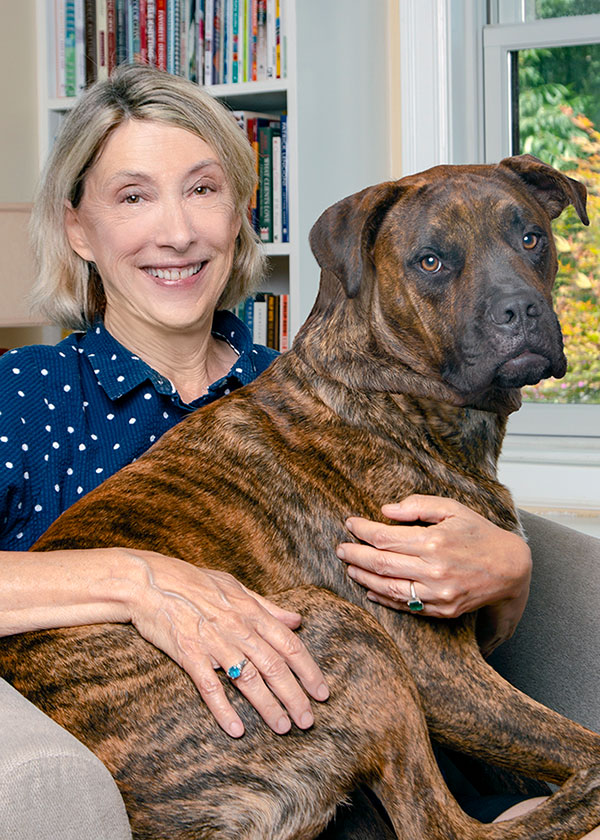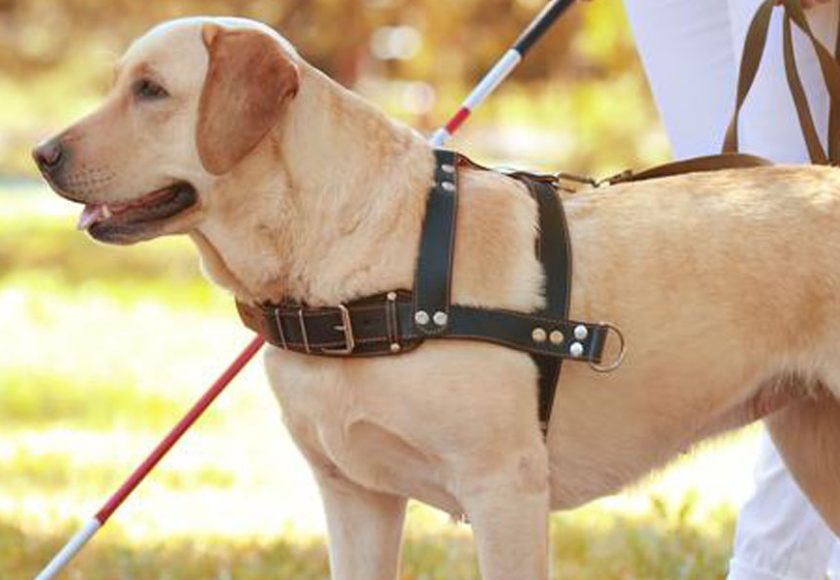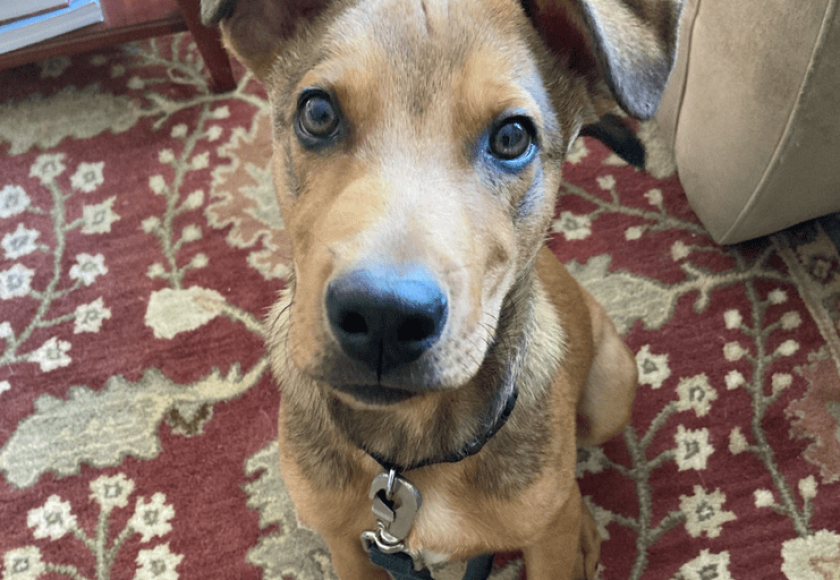Veterans often come home from combat with disabilities or debilitating conditions like Posttraumatic Stress Disorder (PTSD), a traumatic brain injury (TBI), or other physical injuries.
Having a service dog provides many benefits for veterans, who often feel like their normal life was stolen away as they deal with their disabilities. Service dogs for vets can help a veteran reunite with families, feel more comfortable at social activities, encourage them to venture out into public places, and help them find a renewed enjoyment of life. In some cases, veterans may even be able to reduce the amount of medications they take. A service dog can mean the difference between a life of isolation and living life to its fullest potential.
Service dogs can assist vets in a variety of ways. At Putnam Service Dogs, we train them to perform specific tasks that will be beneficial for helping their person. The number of ways service dogs are helpful to vets is based on each veteran’s specific needs. A service dog can be trained to assist a vet as needed. Here are a few of the many ways service dogs can help veterans.
Understanding How Service Dogs Can Help Veterans
Service dogs can assist vets in a variety of ways. At Putnam Service Dogs, we train them to perform specific tasks that will be beneficial for helping their person. The number of ways service dogs are helpful to vets is based on each veteran’s specific needs. A service dog can be trained to assist a vet as needed. Here are a few of the many ways service dogs can help veterans.
Service Dogs For Vets with Physical Disabilities
- Service dogs can retrieve objects from the floor, a counter, or a table.
- They can turn light switches on or off as needed.
- A service dog may push buttons to open an automatic or elevator door.
- The dog can help you navigate safely through crowds
- The dog can assist you in going up and down stairs
- They can be trained to retrieve a phone in an emergency or bark on command for help.
Service Dogs for Veterans with PTSD
Service dogs are trained to perform specific tasks that help their person manage PTSD symptoms, anxiety, or flashbacks. They can help reduce the severity of symptoms, improve the veteran’s mental health, and help improve social interactions. Examples of some tasks dogs may be trained to perform include:
- Alerting the vet to heightened anxiety and nudging or placing its head in the vet’s lap.
- Help calm or provide comfort during anxiety by laying on top of the vet or leaning against them.
- Position their bodies in front of their person and create space for them.
- Cover their vet by watching their backs. Dogs may be trained to position themselves behind the vet and alert them if someone approaches.
- Recognize if their veteran is having a nightmare and gently wake them up.
Qualifying for a Service Dog
Veterans, active duty military members, and first responders may be eligible for a service dog. Eligible candidates will meet some specific qualifications, which include:
- You must reside in the United States.
- A veteran of any military branch who was awarded an honorable discharge or who is still on active duty in the service.
- You suffer from a physical disability, have PTSD, or both.
- You are willing to cover your service dog’s ongoing costs, care, and maintenance.
- You are willing to spend the time and effort to learn how to work effectively with your service dog. This usually takes 5-7 days of intense training (4+ hrs/day), with follow-up training on an as-needed basis for up to 6 more months.

Covering Ongoing Costs and Maintenance
It’s important that the service dog has their basic needs met. A handler must be dedicated to meeting all their service dog’s physical, emotional, and training needs. The dog will need daily care – good quality food and clean water, exercise, praise and love, and potty breaks. Dogs also need veterinary care, including a yearly exam, monthly flea/tick/heartgard medications, and proper care for any health issues that might arise. Grooming can discover issues with the dog, and short nails are essential to the dog’s health, and those around them comfort. Toys, dog beds, etc keep your best friend happy.
Understanding Legal Rights as a Service Dog Owner
According to the ADA, a service dog can be any breed or size. They are trained to perform tasks directly related to their person’s disability(ies). You have the right to take a service dog with you wherever you go, even in places that do not allow pets. This includes locations like:
- Restaurants
- Hotels
- Shops and stores
- Hospitals
- Schools
- University Housing
- Emergency shelters
If your dog misbehaves at a public venue, you can legally be asked to leave. This includes dogs not being under the table at a restaurant, blocking aisles in a store, inappropriate behavior with others in the venue – too friendly, too aggressive, jumping on them, etc.,
Connecting Veterans With Service Dogs
Veterans with disabilities may choose a service dog that can help them better cope with service-connected issues, including PTSD, disabilities, TBI, depression, or other conditions. This animal is much more than a pet, although they are destined to become a truly loved member of the family. However, the dog will need to be trained to meet your specific needs. At Putnam Service Dogs, we take dogs through extensive training so that they are capable of helping vets in specific ways as needed. We carefully choose mixed-breed rescues for our training programs. We also provide thorough, ongoing training once one of our service dogs is placed with its person.
Contact Putnam Service Dogs Today!
Would you like to know how to get a service dog for veterans? If you are a veteran, start by applying for a service dog. Please don’t hesitate to get in touch with us! We will gladly walk you through the entire process. Contact us today, and let us help improve your quality of life. If you would like to learn how to become a service dog raiser for veterans, please contact Putnam Service Dogs. We can’t provide our service dogs without their growing up in the loving homes of their raisers.
Give us a call at 917-449-5359. Or send an email to info@putnamservicedogs.com






